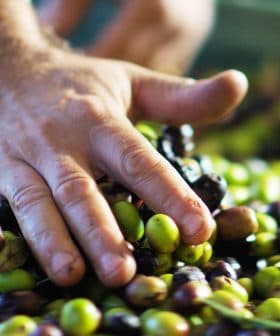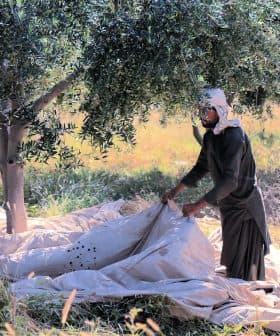Egypt Rejoins International Olive Council
The IOC welcomed Egypt back into the organization and said it would work with government officials and producers to invest in the country's strengthening olive and olive oil sectors.
Egypt has officially rejoined the International Olive Council by signing onto the International Agreement on Olive Oil and Table Olives of 2015 in New York City. This move is expected to benefit Egypt’s olive and olive oil production sectors, with plans to plant 1.5 million trees in the western desert and an increase in olive oil production by 25 percent.
After a one year absence, Egypt has officially rejoined the International Olive Council (IOC).
They did so by formally signing onto the International Agreement on Olive Oil and Table Olives of 2015 in New York City earlier this month. Egypt had previously been a member of the IOC from 1964 until 2017 when its membership was revoked for failing to sign the agreement.
The move was applauded by Abdellatif Ghedira, the executive director of the IOC, who said that Egypt’s membership to the IOC is important, especially in terms of expanding its olive and olive oil production sectors.
Last month Ghedira met with Agriculture and Land Reclamation Minister Abdel Mon’em el Bana in Cairo to discuss the investment plan. As part of the agreement, Egypt will receive financial grants to support olive growers, including funds for an initiative to plant 1.5 million trees in Egypt’s western desert.
Egypt is currently the largest producer of table olives in the world and the ninth largest producer of olive oil. Olive oil production grew by 21 percent last year and is expected to grow by another 25 percent in the coming year.
Hishem el Hossary, the undersecretary of the committee of agriculture, irrigation, food security and animal health, said that Egypt’s membership in the IOC had benefited the country’s olive oil industry immensely by improving the physical and chemical properties of Egyptian olive oil.
He pointed to recent awards for Egyptian olive oil at the Agency for the Valorization of Agricultural Products’ annual competition in Paris as evidence of this. An Egyptian extra virgin olive oil by Wadi Food won a Gold Award at this year’s New York International Olive Oil Competition and won a Best In Class and Silver at the competition in 2015.
After Egypt’s removal from the IOC, it took the country’s house of representatives one year to read and review the updated agreement, which had previously been signed in 2005.
The new agreement changed the requirements for countries to enter the IOC, making it easier. It also provided international protection for the geographical indications agreed on by members as well as encouraged the transfer of technology, cultivation and production techniques among member nations.
The legislative body signed off on the new agreement on January 8 of this year and sent it to the desk of President Abdel Fattah El Sisi to be ratified. He did so on January 29.
It took another two months for the agreement to be officially signed in New York, partially due to presidential elections which took place at the end of March. During the campaign, Foreign Minister Sameh Shoukry met Ghedira in Madrid to discuss finalizing the agreement and Egypt chairing the IOC in 2019.
“Shoukry and Ghedira welcomed the return of Egypt to the council,” Foreign Ministry spokesman Ahmed Abu Zeid said. “[And] Egypt is planned to chair the IOC in 2019.”









